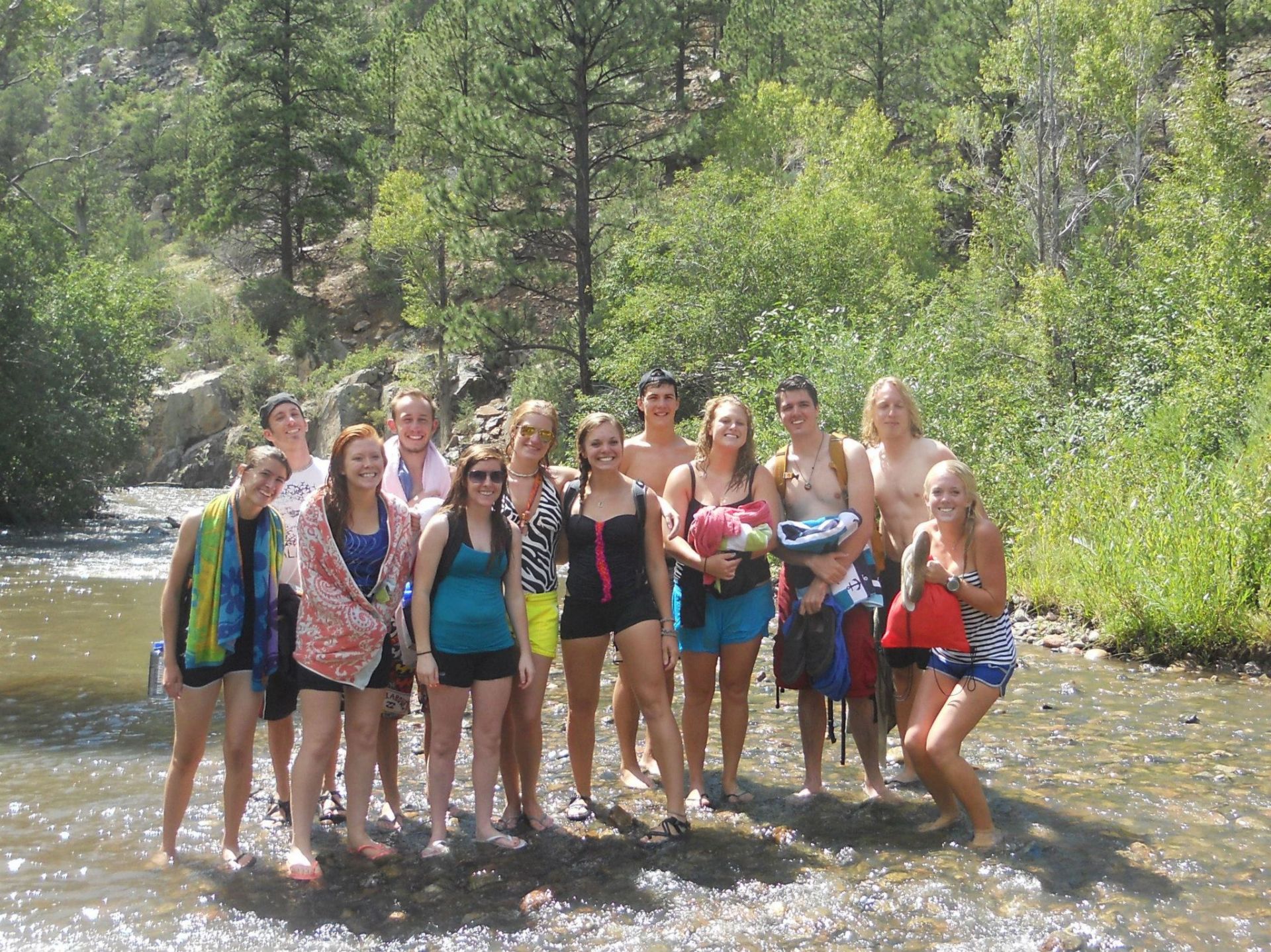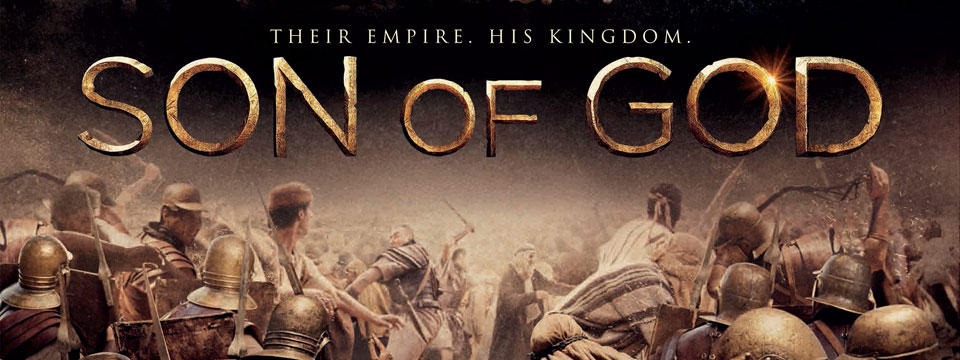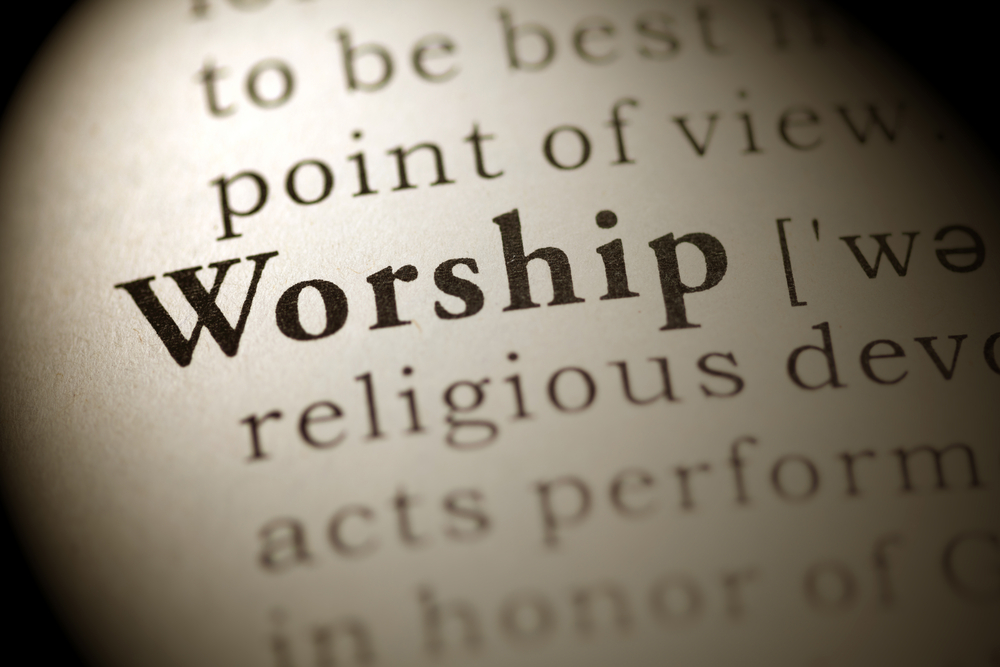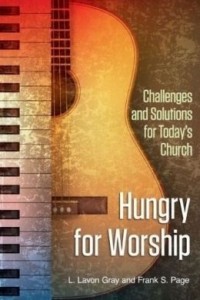
by Meagan Thomas | May 13, 2015
Long time, no read, Wordslingers! It is unbelievable to imagine that a year ago, I was given this opportunity to be a human microphone for this blog, as a Baptist Messenger intern and writer who derives inspiration from my environment, life experiences and the people who intercede in my life’s path. And in this life, God has revealed to me very early how much I have a passion and curiosity of what makes mankind tick, in more ways than one.
From foreign cuisines that are infused with tongue-numbing spices and aromas (Often times my friends wonder how I can stomach and actually enjoy the heat; “if you can’t handle the heat, get out of the kitchen” is my response often times), to the unique styles that often adopt vibrant colors and symbols that are stitched with symbolic purpose within a culture. There’s just something that entices my soul in trying to interpret and truly understand people and how they perceive the world we live in. It is amazing to me how there are so many perceptions of the world around us; in nature, in cultural norms and in beliefs.
Just this recent semester I have just conquered, I was given an opportunity to film a documentary for my non-fiction cinematography class over any topic of our hearts’ desires. My crew (Shout out to my fellow camera nerds, Gavin and Josh!) had unanimously decided to film a documentary over my Native American Art professor I had in Fall 2014 (Shout out to Michael Elizondo, Jr.!), on how his art symbolizes his embrace of his heritage, sense of identity. The purpose we wanted to give this documentary was a realization, a conviction of the cultural differences and tensions that have been present in society since the beginning of time. We wanted to open the window of opportunity to place people, whether it be familiar or foreign, in a perspective where we could unite our hearts, as a human race, and understand and love one another.
We all live in the same world, so we all share a universal purpose, even though we may differ in appearance and in tongue. And that’s what makes life so beautiful; this is a human’s perspective trying to define the omniscient presence and limitless perspective of God. In God’s eyes, we are all of His children. I don’t know about you, but how boring and bland life would be if He created all of us EXACTLY the same? And honestly, it would not be long before I would go insane because I cannot tell the difference between people; that would be a terrifyingly sad reality, for all of us.
I draw inspiration from Acts 8:26-40. In this particular passage, Phillip has a God-destined encounter with a eunuch, a representative of the growing Ethiopian Church. Keep in mind, after Christ, there was a swirl of ordeals as to how to have access, who was “eligible” to receive and hear the Gospel, resulting in an adoption into God’s family. The Jews and the Gentiles (Considered ‘outsiders’ of the faith) were just trying to figure out and decipher the teachings of Jesus Christ.
Fortunately, as human history has unraveled, anyone and everyone who has open hearts and ears for the Gospel, and an encounter from Jesus Christ Himself, can be saved. In addition, as the Gospel was and does tend to spread like a wildfire, at the time, the Ethiopian Eunuch was living evidence as the “ends of the earth”, when Jesus says to reach out to the ends of the earth.
Alluding back to the passage aforementioned, the Eunuch who Phillip had encountered was physically journeying and reciting the prophecy of Isaiah, a way in which he believed could be his bridge to the Gospel he was desperate to cross. Naturally, as all believers are placed in situations to share Scripture/the Gospel, it can be nerve-racking because you don’t know how the receiving end/perspective is going to respond to this Truth. In verses 30-34, the conversation naturally unfurls into something more powerful than the actual people involved in the conversation. God had already been working within the “foreigner” for some time, and in verse 35, Phillip becomes a vessel for the Holy Spirit to flood the thirsty soul of the Eunuch. The passage continues on as the Ethiopian spots a body of water and wants to submerge himself into the act that all believers are called to act upon: Baptism. Shortly after Phillip finalizes the “foreigner’s” adoption into God’s family, the new brothers’-through-Christ paths diverge and spread the Gospel to where God had led them.
Another powerful moment in the New Testament, also found within Acts (Chapter 2), was when the original disciples were at the same place, at the same time, received supernatural powers during Pentecost, in which the Holy Spirit gave them the abilities to speak the Gospel in all languages, of all peoples. God fired up the hearts of the people who would change the course of history and for generations for all time; a group of people Jesus Christ Himself had chosen. If that doesn’t get you fired up as well, as a modern day disciple, I don’t know what will.
Some people may see diversity within the human race as barriers to relate and communicate; others see it as a bridge to see and live life in ways you could never conjure up on your own. No matter your race or color of skin, in God’s eyes, we all bleed the same and need the same Savior.

by Meagan Thomas | Jul 24, 2014
It was just me and the cold, murky water staring back at me, while standing on an uneven, jagged surface of the boulder. No bungee cords, no harnesses wrapped around me, no form of man-made equipment made for these kinds of situations. I just remember thinking to myself, “This is a literal leap of faith. I am actually going to do this. OH MY GOSH, I AM ACTUALLY GOING TO DO THIS…..”, while undeniably, mentally singing “Dive” by Steven Curtis Chapman.
I remember as if it were yesterday. I went with my group of friends, the college ministry at Quail Springs Baptist, and we were attending Glorieta, the collegiate week held during the first week of August every year in New Mexico. Our college pastor at the time, Scott, took those who dared to leap off the rock formations into a calm place of a river that flowed throughout the area. We were in a secluded wooded haven, and enveloped by ranges of mountains.
I always try to remind myself whenever I am placed in circumstances coupled with uncertainty, of a time that I had leapt off a cliff, with in mind, “Jesus has got me; if it’s my time, I am about to meet to Jesus.” It was a defining moment for me, not knowing where I would land when jumping off the rock. Because the waters, that year and last year, were deep and shallow in certain places. If you landed in any shallow patches, it would probably result in a new trip: to the ER. I would never imagine myself doing this, not in a million years, but I decided to go for it, with the support of my ridiculously crazy friends; I wanted to physically show that I trusted God, and take a literal leap of faith.
When we are placed in uncertain circumstances, but choose to remain secure in the fact that God is working in our lives and there is nothing to fear, the end result is something that cannot be defined by words. That’s because the living Spirit of God is present and proves His presence in the time when He calls us to face the uncertainty and fear that follows. No matter the result of the current circumstances, He is seeing His story unfolding before Him, and we are the characters coming to the realization that He sees all and does all through our lives.
As I stared at the water that did not reveal its entirety and deepness to me as much I revealed my fear for it, I strategized as to where I would leap; which part of the water seemed most promising. I just remember the leap, the feeling of vulnerability as my surroundings began to blend with one another, sounds around became muted and landing in a dark, cold abyss. I was never more relieved to feel the gravel sink into the soles of my feet, and acted as the jump board for me to make it back to the surface.
When I made it back to a familiar atmosphere, I heard a thunderous applause. I was thinking, “Yeah, I did it! By God’s grace and mercy. Jesus leapt with me.”
When we all went to the place that held these specific memories once again last summer, and as I was preparing to jump once again, it was revealed to me that there was more than one reason I was greeted with that applause the year before. When I made the momentous leap, the physical leap of faith, my friends, Devin and Josh, tell me that I had barely missed, by inches, the cascading rock formation when I jumped. I knew from that moment, God was with me and protected me from what would have been an almost fatal accident.
I was so unsure of myself and whether or not I should be doing this, as I stared back at the water from the same cliff once again. But, deep within me, I believed I needed to do it again. I believed I needed to place my trust in the same God who has protected me in the past. I needed to show God that I trust Him with all that I have. I leapt once again, and I relived the same experience as I did last time; the only difference was that I did not have a brush with death again, thankfully.
When we are given the opportunities to trust God, we need to grasp tightly onto those opportunities. When we allow those opportunities to come into complete fruition, we get to experience the power and feel the complete, secure control He has over our lives; if it had not been for His provision, I would not be writing to you, right now. But that’s a whole other story in itself.

by Meagan Thomas | Jul 15, 2014
There is a new trend I have, and you have probably detected within the last year: the Bible re-enacted through miniseries’ and films. Some of these elaborate projects have received masses of praise, while others have received floods of controversy and criticism. It is a controversial topic of conversation, and often evokes two types of reactions: “This is a new, evolved tool of ministry, made for this day and age. Especially with the mastered art of special effects”, or “This medium is misinterpreting the Word and censoring it for the entertainment of the world, resulting in preconceived notions that the production is what happened in reality”.
In this universal debate, I can see from the perspectives of both defenses. I admit, my curiosity became like a hungry beast when word first came out that the History Channel would release a miniseries, over the ENTIRE Bible. First thing that enters my mind is, “What?! How is that even possible? This series is going to cost who knows much, and it will last throughout my entire lifetime!” As the world prepared itself for the epic series in spring of 2013, it sparked conversation over the greatest book ever written. I believe, without a doubt, the series has the potential to lead people to Christ. Just seeing the Bible unfolding before your very eyes, having the visual made of the basis of the Christian faith, is just fascinating and makes it all the more real. Nothing is more real than when Christ first encounters the unbeliever, but the series scrapes the surface, revealing a small essence of the Bible and Jesus Christ Himself; it somewhat puts it into perspective.
As mentioned in the past and as seen in my bio, I am fascinated by the capabilities of the camera — what you can create through it. So, allow myself to nerd out for a moment. With the technology that has evolved to be, it has given those with the passion to create visual stories, history or fiction, to impact other people. From each individual shot done intentionally to come across a certain message (Whether it be a “tight” (close), medium, or “establishing” (wide) shot), the music influencing you to feel a certain way about a character or circumstance, to the perception you can give the audience; you have what seems to be limitless power. This is where the controversy of recreating the Bible through film arises.
I am not just talking about “The Bible Series” here. “Noah”, “Son of God”, which was a collaboration of the Christ scenes in “The Bible” series, and the upcoming film to be released December of this year based on the Exodus of the Hebrew nation, “Exodus: Gods and Kings” are not off the hook. Yes, the people involved “making the magic happen” are filming a sacred truth held by millions or billions (I am not sure of the exact statistics. Only God knows that). And that is awesome. However, because they are stepping onto God’s territory, the consequence of making these productions is that many of those, especially those who have yet been revealed the raw truth through Christ, make the interpretations seen through these films as their sole center of truth of the Bible.
Hollywood is known for its over-exaggerating and sometimes disregarding the truth. I like how “The Bible” and “Son of God” interpreted Jesus Christ, however, I know for a fact that Christ is more than just flowers and rainbows. Throughout Scripture, He has proven to be very witty, sarcastic, and honestly, the Master of all comebacks; the Pharisees could never detect when He would disprove them of their man-made, misinterpretations of Scripture when the Savior, the Messiah was living amongst them. One inconsistency I have also seen is that all these dramatizations of the Bible is just the fact of the characters’ appearances. Nothing against the actors, but based on the geographical locations on the events the Bible took place, majority of the people throughout the Bible, including Jesus, were of middle-eastern descent; and I’m not an expert on accents, but I am pretty sure they were not English.
From an aspiring filmmaker/documentarian’s perspective, my dream is to impact people and make them self-evaluate themselves and life as a whole.
But from a spiritual perspective, try not to base the truth of God through manmade films with overwhelming and overused special effects. To really live and see the work of God, refer to the Word of God Himself.

by Meagan Thomas | Jul 1, 2014
When I heard about this book, it confirmed that I was not going crazy. I have had countless conversations with friends about worship specifically, our individual beliefs and perceptions of it. God has instilled a newer and fresher way to approach worship to me, and it all started in the summer of 2010 when I was recruited by my youth choir director to go a summer camp that consisted of students with the potential to lead their churches in worship, either while in youth or as a life calling.
In this season of my life, I was starting to come back to the church after being a spiritual rebel/runaway, and one of the ways I began to get involved again was being a part of our youth worship band. All of us students were an experimental group of the first ever Resonate Music Worship Arts Camp held at Oklahoma Baptist University. It was here where God revealed that worship is not just a wave of raised hands or singing the loudest one could possibly sing, it was about revealing our entire selves to Him.
Ever since that summer and the summer after when I was chosen to go the camp again, worship has never been the same for me. Worship is a sacred action that God expects all of us take part in as His children.
In the book Hungry for Worship: Challenges and Solutions for Today’s Church by Frank S. Page and L. Lavon Gray, is a book over the study of worship. Some may say, “Study worship? Worship is only retained within the church walls and services.” However, it is not. Worship is so much more than what we have concocted as a modern church culture. Worship today has evolved into a division of generations and music preference; worship becomes crowded and superficial when we involve ourselves as one of the elements of fixation during worship.
 One element I loved about this book is that it has pointed out what I have observed in our churches. Seeing people just casually walk in before worship, drinking their coffee not only before worship, but during! It drives me crazy to no end. I know I can never comprehend the God we love and serve, but I believe the casual approach with coffee in hand during worship is the equivalent to ‘Jesus is my Homeboy’, when in reality it should be ‘Jesus is my Savior, Friend and Judge.’ We should be in a healthy fear of Him. Worship is not of our benefit; it is an act of surrender of self and worshipping God in all ugliness and wholeness of self. True acts of worship is acknowledging our state of sin, believer or non-believer, and revealing the nakedness of our souls before Him, holding nothing back. God is all-knowing, but still wants to see our surrender in action. In modern church culture, we have defined and water-downed worship to the point where the music is the only element of worship.
One element I loved about this book is that it has pointed out what I have observed in our churches. Seeing people just casually walk in before worship, drinking their coffee not only before worship, but during! It drives me crazy to no end. I know I can never comprehend the God we love and serve, but I believe the casual approach with coffee in hand during worship is the equivalent to ‘Jesus is my Homeboy’, when in reality it should be ‘Jesus is my Savior, Friend and Judge.’ We should be in a healthy fear of Him. Worship is not of our benefit; it is an act of surrender of self and worshipping God in all ugliness and wholeness of self. True acts of worship is acknowledging our state of sin, believer or non-believer, and revealing the nakedness of our souls before Him, holding nothing back. God is all-knowing, but still wants to see our surrender in action. In modern church culture, we have defined and water-downed worship to the point where the music is the only element of worship.
Another element I detected in the book is how the church has evolved into more into accommodating music preferences, and less about the reason the body is gathered: to worship. The church has become divided by generations, and the one thing all generations across the board are related is by the stubbornness and lack of openness of foreign music to the respectable generation.
“Unfortunately, when left to our own preferences we often revert to what C.S. Lewis called chronological snobbery, where older generations only find value in the traditions and heritage of our faith, while younger generations only find relevance in what is current. In the end, this division by churches into separate worship times, defined by musical styles, effectively began dismembering the body of Christ limb by limb,” pg. 37. This does not ring any more truer.
Also in Hungry for Worship, it gives an historic timeline and shows the evolution of the American church within the last century. It is put in there to show where the church has been, and has the potential to be headed toward.
The thought provoking book also talks about the evolving standards of the Millennial generation and the discipleship/leadership they have followed up to today. That foundation for future worship leaders need and (have the need) to be educated in the classical and modern way of worship. Yes, we need to remind ourselves where the church is from, but we are also called to make the church approachable to a modern society and the generations to follow.
Even though the book seems to be calling out specifically present and future worship leaders, I would encourage anyone to read it because it challenges us to embrace and act in worship as God intended it to be.

by Meagan Thomas | Jun 24, 2014
As I sit here, staring at my computer for any inspiration, in addition to desperately observing my surroundings and finding the deeper meanings in everything, my music playlist has saved me once again from the deep, deep pit of writer’s block! My Spotify playlist is consisted of more history more than I realized.
From the civil rights liberations interlaced in Aloe Blacc’s “The Man”, Bastille’s echoing, rock alternative eulogy in “Pompeii”, to the classic Coldplay song that interprets Napoleon Bonaparte’s triumphs and failures in “Viva La Vida”. History not only shapes the world into what it is today, it becomes inspiration to the culture of music; it has always been and always will be a theme in music.
If historical events can be molded into a song that dominates the charts and their lyrics that can influence people to burst out unashamedly, what if the Christian music scene followed in those same footsteps, and derived their lyrics from events from the Bible? Yes, there are countless songs out there that are based solely on specific verse, but what if there was a song based on David’s life, before he was anointed as king; he was chased down by a power-hungry, evil spirit-influenced king for almost 20 years. That would be one intense, rock/screamo anthem.
It would force people to listen the lyrics carefully, and they would interpret the Gospel in such a way that it can be a bridge into today’s music scene and reach for the lost. However, I know for a fact there is a band out there that has experimented with this method of producing music: the International House of Prayer’s, based in Kansas City, Mo., Electro-Indie band, Pas Neos.
Pas Neos, in Greek translation meaning “All things new”, is a band that sings straight-up scripture, in a way where all people can understand and interpret the Gospel for themselves. From the times when Joshua conquered city after city, to the life of Jesus and relatable parables that reached out for all ears who wanted to hear.
As this is an underground method of spreading the Gospel, I believe that people do respond to it, whether it be strongly for or against it; nonetheless, it has people talking about the most controversial figure in human history and questioning the true meaning of life and where to find it. Either way, Satan is losing because even if people may not understand or believe in Scripture now, they are talking about Christ, seeds are being sown in their hearts and may surrender and believe later in life.
With their electric riffs, atmospheric melodies and powerful vocals, literally and metaphorically, Pas Neos lures you in with its mysterious lyrics and forces you to reflect on the words they are replicating from Scripture. People get to relive the Gospel through the music, as Christ spoke to masses thousands of years ago. To watch the power of their music, check out the link below as they depict the battles of Joshua and God placing his enemies into his hands and “Take it All Back”.
Here in modern terms, if Jesus were a musician, I believe He would reach out in a way similar to this, as He shared parables throughout His life. There would be the beautiful strokes of the instruments and raw words speaking of hope, resulting in music that would attract all ears. There would be crowds by the thousands, as their hungry hope for revolution is fed in listening to whom they believed would overthrow a corrupt government, but there would only be a few who would truly follow Him and listen/digest to what He has to say, and scrape underneath the surface. The disciples were His crew and got to know Him on a level that required full dedication of their lives to Him; they were the ultimate roadies and died for the One they followed to share the message of love He offered then, and today.
Consider this: Would you rather be swallowed by a crowd that only gets to see Him from a distance, or would you rather be with Him, with a VIP pass and follow Him all the days of your life?





